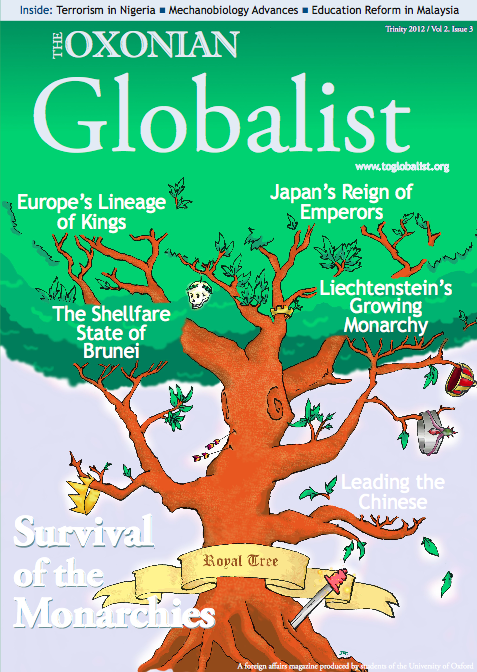It is imperative that we connect history to the present in a concrete manner. We must accomplish this by examining how our lives are shaped by historical events, and the ways in which we can take part in these events to expand our search for meaning beyond our narrow interests and into the broader experience of social change.
This process begins in literature, which reflects the social mores of the time in which it emerges. In an article written for the Asia Times, the journalist David P. Goldman traces the history of the modern novel back to Goethe’s The Sorrows of Young Werther of 1774, about a young man inspired by the likes of Rousseau to live his life in search of a meaningful identity. His efforts to achieve this – through a passionate love affair – fail, and the novel ends with his suicide.
Perhaps most notable about Werther is that it signified a definitive break in the European literary tradition. Where novels had once sought to show society as it was, as a complex tableau abounding with competing individuals and ideas, novels such as Werther concerned themselves with the search for durable personal meaning.
One need not look far to see how this process has influenced contemporary cinema and literature. Fewer novels attempt to link an individual destiny with the flow of History than in the nineteenth and early twentieth centuries. They tend to focus on the personal, on a character’s everyday victories and setbacks, set in a static world sheltered from the violence of historical motion. One of the most fascinating elements of such quests is that this meaning proves cruelly elusive, the problem being that meaning does not come within but from without, based in the ways in which our lives intersect with the lives of those around us.
It is by situating meaning in broader social processes that Salman Rushdie joins the personal and the political in his novel Midnight’s Children. His epic story revolves primarily around the life of Saleem Sinai. Born at the stroke of midnight at the exact moment India gained its independence from British rule, Saleem’s life will remain inexorably tied to the major historical events of his time. Each action he undertakes will be reflected in the violent twists and turns of his nation’s turbulent history.
Saleem recounts how he became telepathically connected to the other 1,000 “midnight’s children”, all of whom possess amazing supernatural powers as a recompense – or curse – for having been born in the glorious moment of India’s liberation. Their thoughts keep him awake at night, and it is not long before they begin engaging each other in heated debates over their purpose with regard to their country’s future. As a consequence of their unflagging presence in his mind, Saleem does not – and cannot – separate his personal sense of identity from his role as a member of Indian society. His identity is evident: tied to India’s destiny by accident of birth, Saleem is fated – like the rest of “midnight’s children” – to “forsake privacy and be sucked into the annihilating whirlpool of the multitudes”.
Burdened as he is by destiny, Saleem does not allow himself to be deterred from accomplishing the closest thing he has to a duty: the completion of his memoir, an exhaustive history of the newly independent India in which he features as the drama’s protagonist. Saleem believes that this work resembles a religious text in its assumptions and scope. “What’s real and what’s true are not necessarily the same,” he warns his reader.Truth, like a nation’s value or a religion’s sanctity, depends on faith. Saleem argues that his version of the events of twentieth-century Indian history is true because he believes in them. As such, they acquire a distinct moral quality, in that Saleem, like all human beings is a biased observer.
Saleem, the son of a poor couple has his identity secretly switched at birth so that he grows up in a middle class Muslim household. With such a background, he comes to embody the diversity of India, and as such can never accept the arguments of those who wish to partition the subcontinent, whether by religion, culture, or ethnic group.
Saleem truly believes in the India he was born into, and implores the other “midnight’s children” to use their shared experience as the basis for a new culture united in the name of equality and tolerance, unburdened by the prejudices of class and ethnicity. Yes, this is idealistic, especially for one living in a country whose history bears the imprint of a rigid caste hierarchy. This, however, does not mean that such a vision is unworthy of their efforts. It means that their success depends on their ability to see themselves as part of a history in the process of unfolding.
History is in perpetual motion, and the context into which we are born creates the conditions necessary for thought and action. The past remains important not simply because it holds lessons for the future, but because it reveals new opportunities for innovation; the possibility of meaning for the midnight’s children begins with the night of their birth. A new India will depend on their capacity for unity in the face of great uncertainty.
We should not lament our past. We must accept it as we live it and use it to determine our future. We can write our histories as we have lived them and pursue the truth embedded within our historical context for something greater than self-knowledge: a means of transcending the differences that pit humans against one another.




